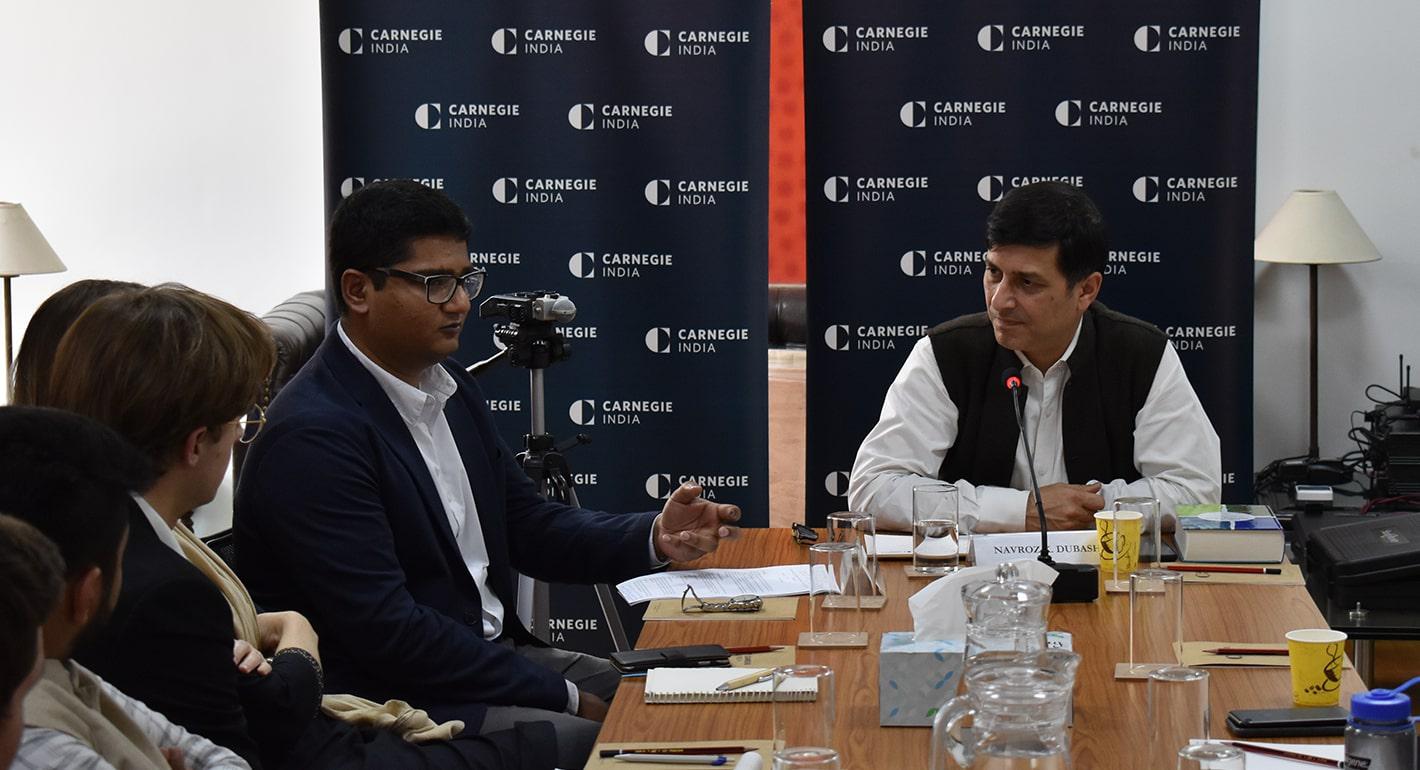Registration
You will receive an email confirming your registration.
Globally, the conversation around climate change has grown more urgent. While countries have reached a consensus on the dangers posed by rising greenhouse gas levels, they disagree on the actions that need to be taken to reduce the extent of global warming. On December 12, 2015, 195 nations entered into the Paris Agreement that set a goal to limit their individual carbon footprints and restrict global temperature rise to 1.5 degree celsius. As India works toward meeting its commitments under this agreement, it faces development challenges that necessitate integrating climate concerns into development policies. In his recent book, India in a Warming World: Integrating Climate Change and Development, Navroz K. Dubash examines India's approach toward climate change as part of the country's larger development discourse.
We hosted Navroz K. Dubash to discuss India's evolving climate change debate, based on the book. The discussion was moderated by Anirudh Burman.
Discussion Highlights
- Narrative: Participants discussed the changing narrative regarding climate change in India. They noted that the narrative of climate change has evolved from the question of whether India should tackle climate change to how India can overcome the challenge.
- Science of Attribution: Participants highlighted the importance of attribution science, noting that it refers to investigating links between climate and extreme weather events in local contexts. Scientists have been able to provide evidence of climate change on a local scale, but evidence on the relationship between climate change and local weather calamities in specific areas was lacking. Participants highlighted that with the onset of attribution science, scientists are increasingly able to understand this relationship, and have been able to provide concrete evidence. This can potentially provide better evidence of the impact of human activity on climate impacts, and consequently increase the accountability of corporate and other actors.
- International Negotiations: Participants discussed the evolution of climate change in foreign policy negotiations. They noted the importance of countries taking a stand on climate change issues internationally. Participants agreed that the Paris Agreement was a massive turning point in global engagement to limit climate change. This is because the agreement is binding with respect to the procedures for monitoring compliance with self-declared targets, consequently becoming more effective. This was described as a “two-level game,” wherein national policies are influenced by larger international processes or vice-versa. They agreed that pursuant to the agreement, countries that have signed the agreement exhibit an overarching sense of accountability domestically.
- India’s Approach to Climate Change: Participants noted that in India climate change is viewed as an issue of serious urgency. They noted that traditionally climate change was viewed as a problem caused by the West. In the recent past however, there has been a realization of India’s vulnerability to climate change. This has led to an increased effort on India’s part in tackling climate change. Some participants felt that this shift has been due to an understanding of how vulnerable India is to climate change due to studies on issues such as rising sea levels and their detrimental impact on India’s coastal cities. Participants noted the importance of building research capacity in India, given the limited research capabilities for environmental and climate change research. Participants agreed that besides the tangible cost of climate change, India also developed an increased sense of responsibility towards climate change due to rising pressures from the international community. They noted the Indian state’s efforts in exploring alternative sources of energy.
- Looking Ahead: Participants discussed that climate change policy making is complex and requires not only sectoral changes, but also behavioural shifts. They also noted that the level of political participation differs greatly among nations based on multiple factors, such as the level of education and communication at various levels in the country. Participants also highlighted the importance of developing local expertise in the field and working towards fixing institutional problems. They noted that fixing institutional problems can potentially lead to transformative change at the local level. Participants also reiterated the importance of multi-objective framing, which entails the setting up of clear objectives and mapping the best way to achieve those objectives. Participants agreed that it is important to look at economic, political, local, global, and environmental factors to successfully implement these objectives.
This event summary was prepared by Upasana Sharma, a research assistant at Carnegie India.
Speakers
Navroz K. Dubash
Navroz K. Dubash is a professor and the coordinator of the Initiative on Climate, Energy, and Environment at the Centre for Policy Research (CPR). His research and policy interests include climate change policy and governance, the political economy of energy and water, the regulatory state in the developing world, and the role of civil society in global environmental governance. In 2015 he was conferred the 12th T.N. Khoshoo Memorial Award in recognition of the impact of his work on Indian climate change policy and the international discourse on global climate governance.
Anirudh Burman
Anirudh Burman is an associate fellow at Carnegie India. He works on key issues relating to public institutions, public administration, the administrative and regulatory state, and state capacity.
